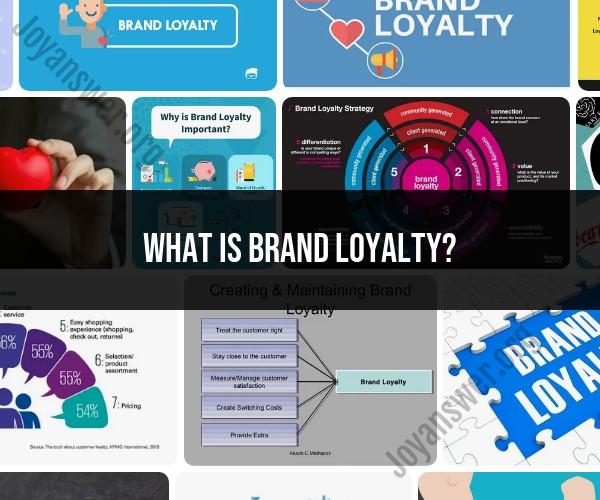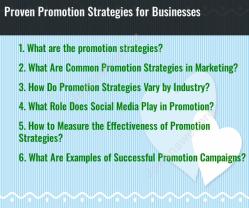What is brand loyalty?
Brand loyalty refers to the extent to which customers consistently choose to purchase products or services from a particular brand or company over competitors, even when similar alternatives are available. It is a measure of the customer's attachment, trust, and commitment to a specific brand. Brand loyalty goes beyond mere repeat purchases; it reflects a deeper emotional and psychological connection between the customer and the brand.
Key aspects of brand loyalty include:
Repeat Purchases: Loyal customers consistently buy from the same brand, showing a preference for its products or services.
Resistance to Competitors: Even when competitors offer similar products or services at competitive prices, loyal customers are less likely to switch brands.
Advocacy: Brand loyal customers often become brand advocates, promoting the brand to friends, family, and colleagues through word-of-mouth recommendations.
Trust and Confidence: Loyal customers have confidence in the brand's quality, consistency, and ability to meet their needs, reducing the perceived risk associated with trying new products or services.
Emotional Connection: Many customers develop emotional bonds with brands, feeling a sense of identification, attachment, or even nostalgia.
Reduced Price Sensitivity: Loyal customers may be less sensitive to price changes and are willing to pay a premium for their preferred brand's offerings.
Engagement: Loyal customers may actively engage with the brand through social media, participating in loyalty programs, and providing feedback.
Brand loyalty is valuable to businesses because it leads to higher customer retention rates, increased customer lifetime value, and cost-effective marketing through word-of-mouth recommendations. Building and maintaining brand loyalty requires consistently delivering quality products or services, exceptional customer experiences, and effective marketing and communication strategies that reinforce the brand's values and identity.
Unpacking Brand Loyalty: What It Means and Why It Matters
Brand loyalty is a customer's preference for a particular brand over its competitors. It is a complex phenomenon that is influenced by a variety of factors, including product quality, price, customer service, and emotional attachment to the brand.
Brand loyalty is important for businesses because it can lead to a number of benefits, including:
- Increased sales and profitability: Loyal customers are more likely to repurchase from the same brand and to spend more money on each purchase.
- Reduced marketing costs: It is more expensive to acquire new customers than to retain existing ones. Loyal customers are less likely to switch to a competitor, which can save businesses money on marketing and advertising costs.
- Positive word-of-mouth: Loyal customers are more likely to recommend the brand to their friends and family. This positive word-of-mouth can help businesses attract new customers and grow their business.
The Power of Brand Loyalty: Why It's Important
Brand loyalty is a powerful force in the marketplace. Studies have shown that loyal customers are more likely to spend more money with a brand, are less likely to switch to a competitor, and are more likely to recommend the brand to others.
For example, a study by Bain & Company found that a 5% increase in customer retention can lead to a 25% increase in profits. And a study by the Loyalty Group found that loyal customers spend 67% more money with a brand than new customers.
Brand loyalty is also important because it can help businesses weather tough economic times. When consumers are feeling uncertain about the economy, they are more likely to stick with the brands they know and trust.
Consumer Allegiance: Understanding the Concept of Brand Loyalty
Consumer allegiance is a type of brand loyalty that is characterized by a deep emotional connection to the brand. Consumers who are allegiant to a brand are more likely to forgive the brand for mistakes and are less likely to switch to a competitor, even if offered a better deal.
There are a number of factors that can contribute to consumer allegiance, including:
- Shared values: Consumers are more likely to be loyal to brands that share their values. For example, consumers who are passionate about sustainability may be more likely to be loyal to brands that are committed to environmental protection.
- Positive brand experiences: Consumers are more likely to be loyal to brands that have consistently provided them with positive experiences. This includes things like high-quality products, excellent customer service, and a rewarding loyalty program.
- Community: Consumers are more likely to be loyal to brands that have a strong sense of community. This could be a literal community, such as a group of Harley-Davidson riders, or it could be a more abstract sense of community, such as the feeling of belonging to a group of Apple users.
Businesses can build consumer allegiance by focusing on the factors that contribute to it, such as shared values, positive brand experiences, and community.
Conclusion
Brand loyalty is a valuable asset for any business. By understanding what brand loyalty is and why it's important, businesses can develop strategies to build and maintain loyal customer relationships.













